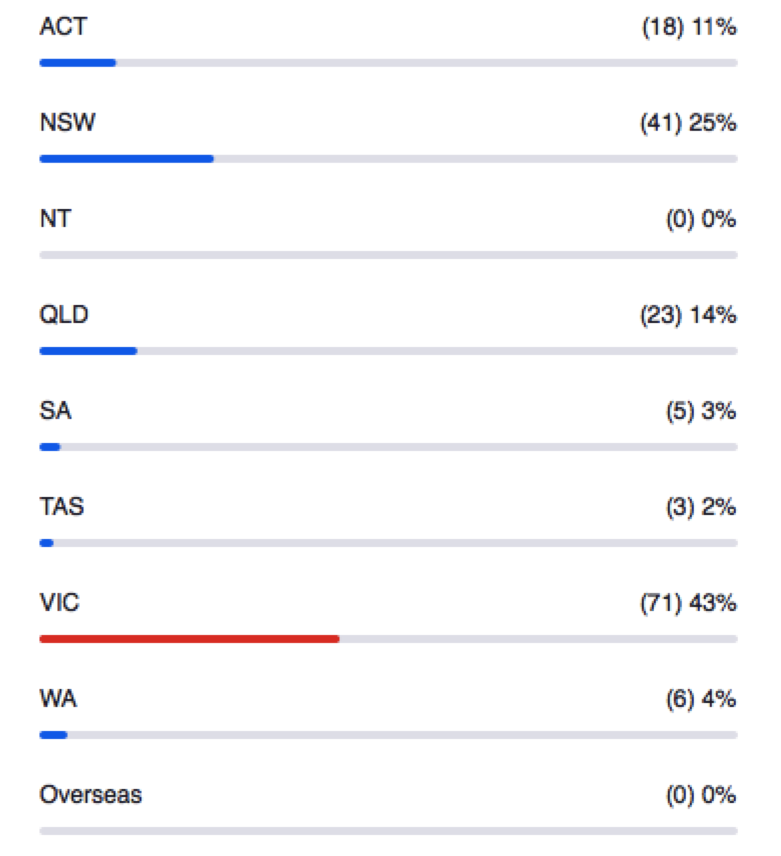Tuesday March 30, 4:30-6:00 pm Online Event VicTESOL held an afternoon of sharing on the topic of multimedia use in the adult TESOL classroom. The session began with three teachers…...
Jenny Robins Thursday 4 March 2021, 4-5:30 pm (AEDT) Online Event Jenny Robins began as a volunteer in 2011, then became a qualified teacher, working with adult migrants, people from…...
The VicTESOL early childhood education series focuses on families and communities as a resource for growing and strengthening the development of bi/multilingual children.
The series engages with key Australian early childhood documents and frameworks including the Early Years Learning Framework (EYLF), the Victorian Early Years Learning and Development Framework (VEYLDF) and the recently released VCAA resource Supporting Bilingualism, Multilingualism and Language Learning in the Early Years.
This series is made possible through a generous grant from The Foundation of Graduates in Early Childhood Studies at AGECS.
Click here to access the resources, videos and recordings from the keynote presentations (Feb-April 2021).
Glynis Rose & Rosemary McLoughlin Tuesday 16 February 2021, 4-5:30pm, Online event In this session, Glynis and Rosemary provided feedback on student performance in the 2020 VCE EAL exam, including…...
Stephanie Georgiou & Maddy Oh Tuesday 9 February, 4-5:30 pm Online Event Presenters: Stephanie Georgiou has more than 18 years of experience in teaching EAL. She has worked in the…...
Luke Treadwell & Tanja Rykovska, AMES Australia
Wednesday 18 November, 4:00-5:30pm AEDT
Online Event
This workshop was based on the premise that digital literacy is vital for living, learning, and working in contemporary Australian society and therefore needs to be a key feature as both a support and an outcome of any relevant EAL program. The session detailed the experience and learnings of one such program that was specifically designed (pre-COVID) to engage low level EAL learners in online learning. The session covered the basic course design principles of our EAL online courses, the strategies developed to engage and support the learners and their challenges and achievements learning in an online environment. Luke and Tanja’s presentation was followed by Q&A and small group discussion.
Luke Treadwell is a senior teacher with many years of program and proect management in AMES. Luke has taught EAL students for many years across many programs and has recently worked extensively with ASMES online learning program.
Tanja Rykovska is an EAL teacher with extensive experience teaching English, designing and delivering EAL programs in various settings and for diverse cohorts. She has a special interest in technology in language learning and has integrated technology in her teaching throughout her career. She has been involved in AMES online learning initiative since 2015.
If you want to find out more, here is the link to the AMES Course Taster: https://ames-sandbox.mrooms.net/course/view.php?id=51
Webinar Event – Wednesday 11th November 2020, 7-8pm AEDT
Learn about the Commonwealth Government’s vision for English language provision for adult migrants
Presenter Alison Larkins was appointed in late 2019 as Commonwealth Coordinator-General for Migrant Services. Her role is to work closely within the Commonwealth and State/Territory governments, industry, and the community sector to drive improvements to employment, English language, and broader settlement outcomes, and through this work, to promote the contribution of migrants, refugees and humanitarian entrants to Australia.
Experienced AMEP teachers Jakki Cashman (Canberra) and Skye Playsted (Queensland) provided brief responses, followed by audience questions.
Thank you to everyone who attended the forum ‘English for Adult Migrants – Future Directions’ with Alison Larkins. The response to this event was overwhelming. Registrations closed at our limit of 500 and 374 people attended. Data on registrations and attendees are as follows:
REGISTRATIONS – Teaching Focus
AMEP: 328
AMEP & SEE: 106
SEE: 29
Teacher education: 18
Training to teach TESOL: 34
Other (with no other ID): 82
Note: some people listed more than 1 focus.
ATTENDEES – Locations
Which state/territory are you joining this webinar from today?

Are you based in a regional or metropolitan area?

If you attended the event, please click here to complete the evaluation survey.
Alison Larkins
Commonwealth Coordinator-General for Migrant Services, Department of Home Affairs

Jacky Springall Tuesday 10 November 2020, 4:00-5:30pm AEDT Online Workshop This practical workshop was based on the premise that EAL teachers need to be pro-active in integrating a focus…...
Wednesday 28 October, 4-5pm
Panel Discussion and Q&A
Laurence Guttmann, Rosemary Abboud, Margaret Corrigan, and Julia Lippold
Some resources that were shared within this session:
- Carringbush Education teacher training videos which are available at: https://www.carringbush.org.au/resources
- Foundation House: https://sifr.foundationhouse.org.au/ and https://foundationhouse.org.au/ There is an upcoming Calendar Professional Learning Session ‘Introduction to the Refugee Experience/Schools in for Refugees’ on November 19th 9:30 – 12:00. You can register here https://learn.foundationhouse.org.au/workshops/
- Choi, J., & Ollerhead, S. (Eds.). (2018). Plurilingualism in teaching and learning: complexities across contexts. New York: Routledge.
- VCAA Video Resources: https://www.vcaa.vic.edu.au/curriculum/foundation-10/resources/english-as-an-additional-language/Pages/EALImplementationVideoResources.aspx
- Gibbon, P. (2015). Scaffolding language, scaffolding learning: teaching English language learners in the mainstream classroom. Portsmouth, NH: Heinemann.
- Swan, M., & Smith, B. (2001). Learner English: A Teacher’s Guide to Interference and Other Problems. Cambridge: Cambridge University Press.
- EALD Learners are Plurilingual: https://www.education.vic.gov.au/school/teachers/support/diversity/eal/Pages/EALD-learners-are-plurilingual.aspx
- PETAA (The Primary English Teaching Association Australia) – PETAA Papers: Pen 95 ‘What is a functional model of language?’ By Robyn Ewing
- Dr Jenny Barnett’s webinar on graduate EAL teacher standards: https://victesol.vic.edu.au/index.php/2020/09/08/meeting-graduate-standards-for-working-with-eal-d-learners-dr-jenny-barnett/
- Dr Sue Ollerhead’s (Macquarie University) webinar- Translanguaging in the Classroom (Please note: This is a VicTESOL member resource – Click here to become a member – Free for students and teachers in their first year of teaching)

